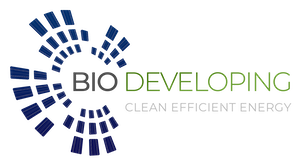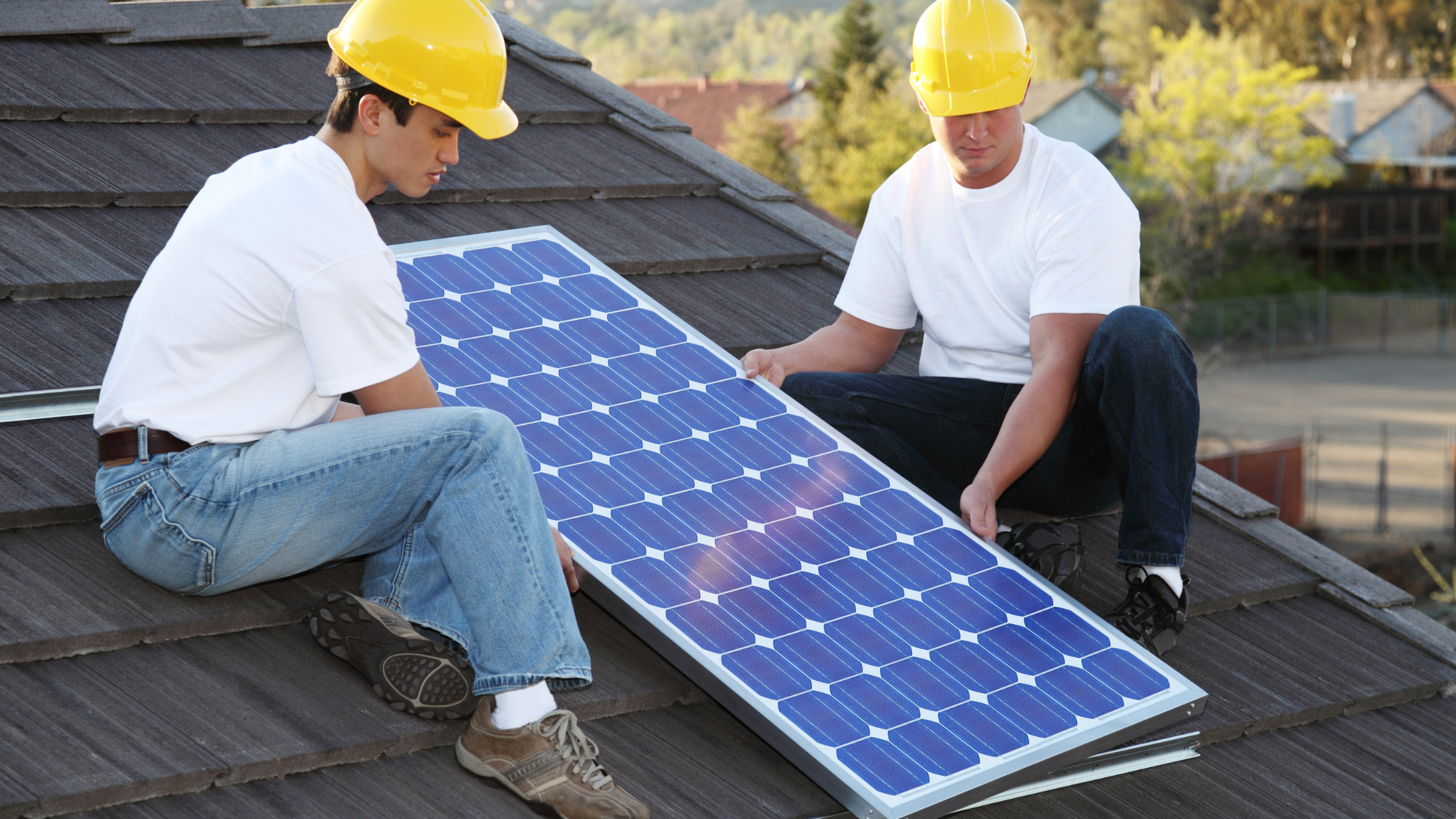In a previous article, I discussed that New Jersey is one of the best places to install solar, and I explained why that is.
Today, solar is within anyone’s reach!
Solar installations in New Jersey have not only become affordable, but they can significantly decrease the amount of money you spend on energy each month.
Nevertheless, installing solar power can be quite an investment and like any important home project, it’s critical to ensure it’s done right.
If you’re considering solar power as an option for your property, here are some important questions you should ask a solar installer.
What kind of solar installation is on your own roof?
When I first started working with New Jersey solar installers some years ago, one of the things that I immediately noticed, which I thought was a great sign, was that most of the owners or sales staff who owned their own home had solar installed themselves. This is not something I’ve seen in all industries.
It’s always great to know a baker eats his own cakes!
I saw that a lot of solar installers in New Jersey not only believe in solar and their company enough to get their own solar installation, but they installed solar on their home because it made financial sense at a personal level, which is what you as a homeowner want as well!
Now, if the solar consultant doesn’t have his own solar installation, it doesn’t necessarily mean that they aren’t a good company or that they will do a poor solar installation.
After all, they could be working to get a new roof before they install solar, or maybe they don’t own the home that they live in and so forth.
But it’s always great to know that the person you are speaking to has their own solar installation and that they are themselves happy with it!
How big should my solar installation be to maximize my savings?
This question not only tests your New Jersey solar installers’ ability to properly plan your future solar installation, but it also gives you an idea of how much roof space you’ll need if you can offset all your energy costs with solar power, and most importantly how much your solar power system is going to cost.
Unfortunately, I’ve seen many solar consultants promise away a 100% offset or that a certain number of panels will provide you with “more than enough” solar power.
To answer this question, the solar company is going to need to collect information and do its own study and planning.
Your solar installer will need to need to review:
- Your energy bills to understand your monthly and yearly energy usages and usage patterns.
- What parts of your roof receive the most amount of sun, at what angles to place solar panels, and how many solar panels can fit where.
- Any surplus solar power that you will create and feedback to the grid, that will in turn help you offset months where you use more energy.
- What utility you use and what their energy rates are so that they can properly project and predict your savings.
Watch out for solar consultants who give your home a quick look and tell you that they’ll be able to cover your energy needs with a solar installation.
Fortunately, at Bio Developing we use a special software that employs satellite information and artificial intelligence to plan your entire solar project as long as we have some basic information from you.
Are you licensed to install solar in New Jersey?
This one sounds all too obvious, but you would be surprised!
With a large consumer-level boom in New Jersey’s solar industry, many solar installers in New Jersey are not in fact licensed installers and are just brokers or sales companies who in turn employ a solar installer to do their solar installations.
A more direct version of this question would be if they are doing the solar installation themselves or are they going to sub-contract the work.
If they are not installing the solar panels themselves, no matter what guarantees they make, most of the actual work and equipment will not actually be guaranteed by them and should anything go wrong or should you need any help, or have questions after the installation is complete, you’ll find them unable to assist you and you’ll be stuck between them and the installer, or the panel manufacturer.
How experienced are your solar installers?
New Jersey’s solar boom is a rather new occurrence. By that, I mean that it wasn’t until the last decade or so that solar really started taking off.
That’s because it wasn’t until recently that solar was affordable for everyone. Due to that, you’ll rarely find solar installers who have been at this for twenty or thirty years.
However, there is a difference between a company that just started and one that’s been doing this for 5-10 years.
As residential solar is a relatively new industry, there will be many new companies starting up and trying to help homeowners with their solar installations, offering competitive pricing, and so on.
It would be very unfair to deny these new startups a chance at your business just because they are “new”.
If you’re a business owner, you most likely know that managing a startup in a highly competitive industry can be challenging.
Just because a solar installation company is new it doesn’t mean that they are going to do a poor job or that they use bad equipment, in fact, many startups are people who saw faults in a previous company and wanted to start their own company to solve the common problems.
That’s why we have several questions you should ask and not just this one.
Another way around this question is to ask how many solar installations the company has completed and in what time period. This will give you an idea of how experienced they are and, of course, the more experience the better the work quality will be.
Can my roof handle the weight of solar panels?
To start with, if your roof has leaks, is old, or has signs of damage, this is something you should address prior to installing solar panels.
After all, solar panels are going to be attached to your roof, and uninstalling them and re-installing the solar panels when you get your roof replaced or repaired can be time-consuming and expensive.
Any solar installer worth their weight is going to ask you about your roof and before installation, they will inspect your roof to ensure it’s in good shape and can have solar panels installed on it.
If your roof is not new or needs repair or replacement, do not get discouraged!
Many solar companies partner with roofing companies to both repairs or replace your roof and install solar panels at the same time. Doing both projects at the same time has many benefits, including possible tax credits and incentives that can be applied to the entire project.
What do I do if my solar panels are not producing as much power as predicted?
This question isn’t always completely fair because solar panels depend on the sun for their energy and no solar installer will be able to fully predict the sun’s behavior, rain patterns, cloudy days, and so on over the course of the next 12 months.
However, there is a lot of information and there are plenty of calculations for solar companies to predict how many solar panels your home will need and how much energy they should predict, and if they will be able to offset your energy needs 100% or not. And it’s always good to know that your solar installer is there to help you should you run into any issues with your solar panels.
This being said, I have seen solar companies become optimistic about how much solar power can be produced by a solar installation because by removing a panel or two they can also reduce the price.
While price is important, it’s also important that you buy a big enough solar power system so that all your energy needs are covered as this will pay off in the long run.
For example, at Bio Developing we use a specific formula that overcompensates energy production by just enough so that the solar power systems that we design produce enough energy to cover client needs.
Nevertheless, ask your solar company what happens if the system doesn’t produce the amount of power predicted. For example, many companies will offer to install an additional solar panel.
While we are talking about what-ifs, this next question is probably one of the most important questions to ask:
What warranties and guarantees do my solar panels come with?
For many homeowners, installing solar is still a new thing! Perhaps you yourself are doing research to make sure solar is the best decision for your New Jersey property.
Many homeowners have many questions and many still have their doubts as to if solar is right for their home or not, financing is one of the main concerns.
All solar power systems come with both equipment warranties and quality guarantees. Solar installation companies also guarantee their work for a certain number of years. While solar panels don’t actually need a lot of maintenance, also ask if the warranties require a service to be done every so often in order to keep your installation warranty from becoming void.
Ask as many questions about this as possible and read the paperwork if you can to ensure that the work done and the equipment installed have good warranties and proper guarantees.
What happens if I install solar and later on I need more power?
This may not seem like an important question but it is.
For example, at Bio Developing we ask many questions to try and predict any future changes in your lifestyle that will impact or change your energy use patterns.
Expanding your family or welcoming a new family member will increase your energy use, while your kid turning 18 and moving out of the house will decrease energy use. Adding an additional room to your house or renting one of the rooms out will also increase your energy use and so on.
Taking these changes into account will help your solar company properly plan out your solar power system and give you an accurate description of how much you will be paying monthly as well as how much money you will be saving.
However, what if you have plans to change your lifestyle in some way, or what if your lifestyle changes due to something you did not predict? After all, this is life and things happen.
Ask your solar installer how they handle such situations and are they able to add panels at relatively affordable costs, and so on.
Conclusion
There may be 101 questions you should ask your solar company when looking at going solar.
While solar is an important investment, done right it can also bring you many benefits including reduced energy costs. The key is to ask as many questions as you need in order to feel comfortable with the solar plan made for your home.
Article by
Rebecca Samson
Editor, Bio Development




Recent Comments